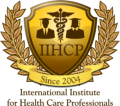Since the days of Florence Nightingale, the nursing profession has existed for nearly 200 years. Since then, there has been a lot of development in the sector, from new technologies and medical treatments to new patient care standards. Few things, however, have had as much of an impact on nursing as the COVID-19 pandemic. Nursing during a pandemic is unpredictable, but that doesn’t mean you shouldn’t consider it a career option. We’ve all experienced the little discomfort of donning a mask when running errands. Nurses, on the other hand, must deal with personal protective equipment (PPE) on an entirely different level.
Nurses have always been required to wear some sort of personal protective equipment (PPE), the pandemic has increased the need for PPE much beyond scrubs and gloves. It’s exhausting to wear a rabbit suit, mask, face shield, and gloves. It’s difficult to breathe, sweating profusely, and it’s quite hot. While it’s impossible to predict what the future holds, this level of PPE may become typical for nurses even as the pandemic’s worst days pass. Many hospitals were severely understaffed by the end of 2020.
This scarcity resulted not just from the increasing demand for ICU treatment but also from the fact that many nurses were quitting the sector for various reasons, including stress, a lack of child care, and infection with COVID-19. Working during a pandemic took a toll on healthcare workers’ emotional and mental health, which is closely tied to nurse shortages. The staff-to-patient ratio continued to rise, and nurses were asked to take on more responsibility. One undeniable benefit of the pandemic is that nurses are taking ownership of their careers and the field as a whole.
